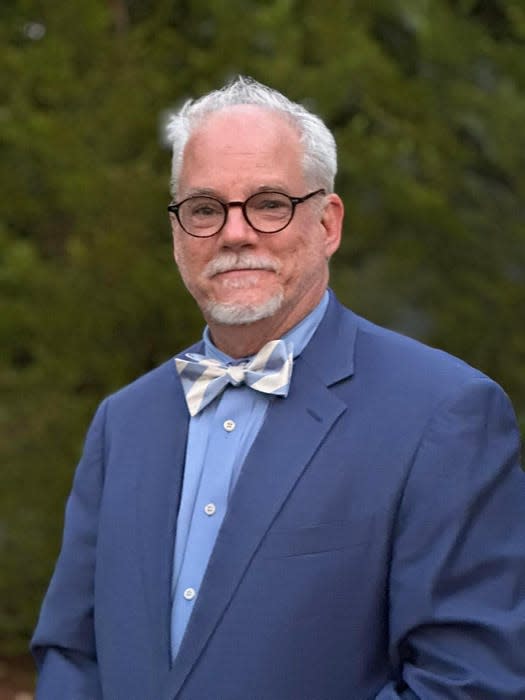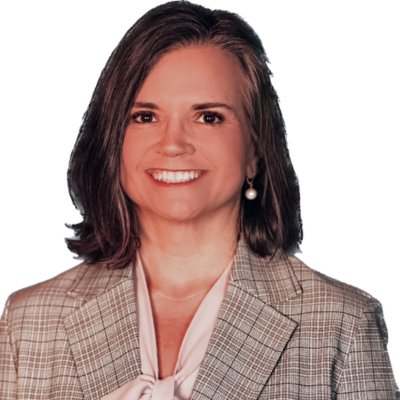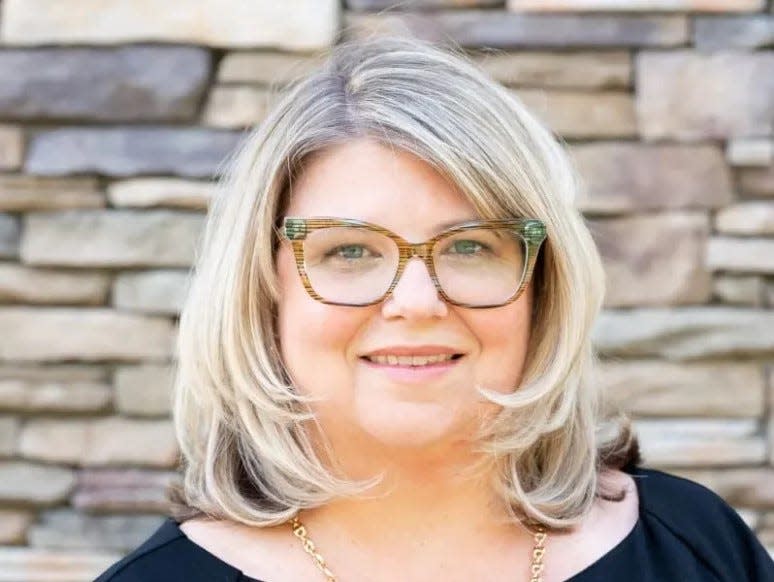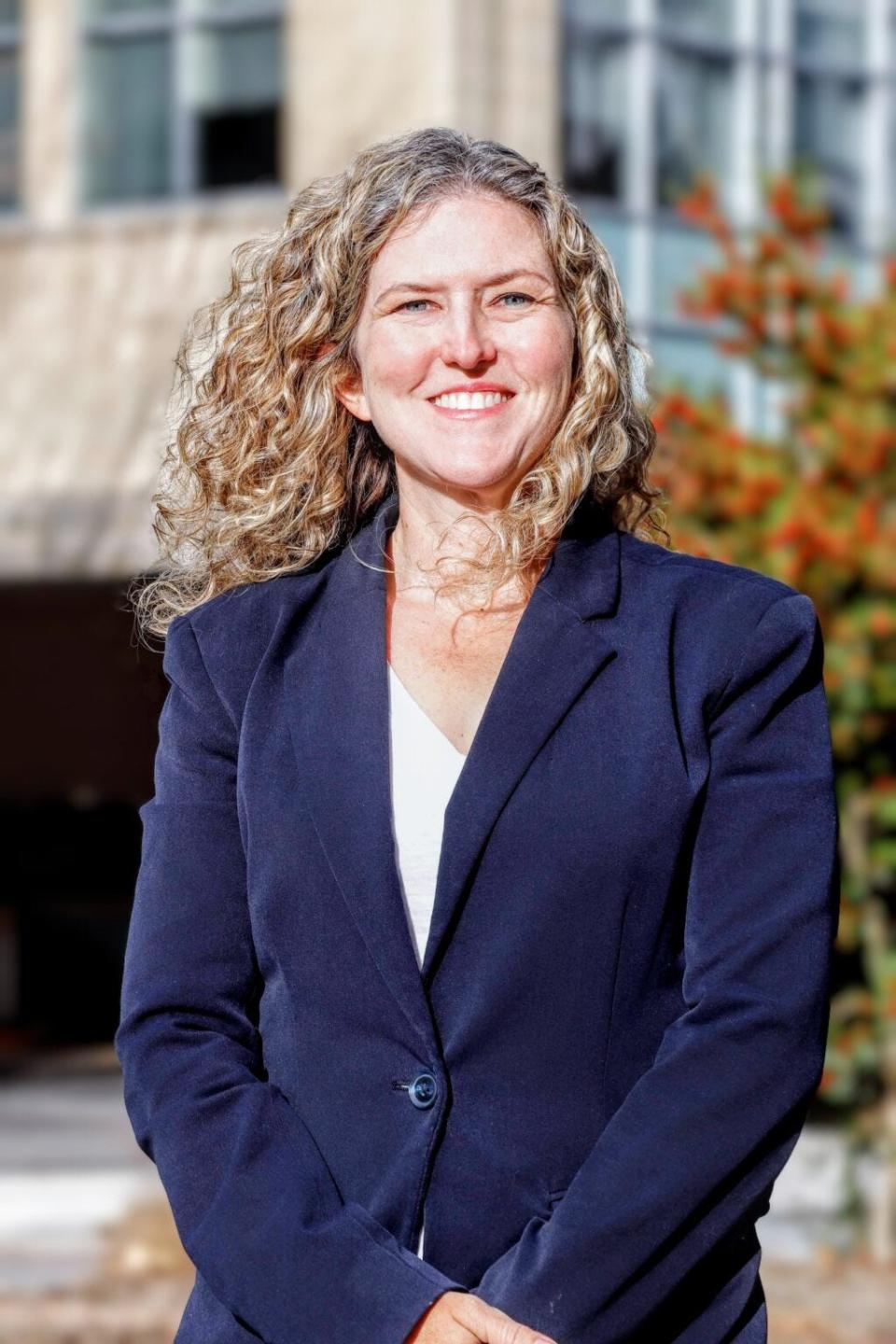Buncombe district court judge forum: Bail bonds, criminal justice reform, jail disparity
ASHEVILLE – Two Buncombe County District Court judge seats are open for the upcoming primary election with only Democratic candidates in the running. Therefore, the March 5 primary will decide the entire race.
Buncombe’s four candidates for district court convened for a Jan. 25 forum at the county’s Democratic Party headquarters in Oakley with fewer than 60 people in attendance. Local elected officials who attended included Sheriff Quentin Miller, N.C. Rep. Eric Ager and N.C. Sen. Julie Mayfield.
District courts hear a wide range of civil, juvenile and criminal cases including divorce, child custody, child support and low level criminal cases as well as abuse, neglect and dependency cases involving children younger than 18, according to the North Carolina Courts website.
The candidates for district court judge are all Buncombe County natives with long legal careers.

Meredith Pressley Stone, 42, and Todd Lentz, 57, are running for one seat, which is currently held by Chief District Court Judge Calvin Hill, who is retiring at the end of his term after 18 years on the bench.
Robin Merrell, 48, and Emily Sutton Dezio, 47, are running for another seat in the district, now held by Unified Family District Court Judge Andrea Dray, who is not running for reelection.
The next Chief District Court Judge will assign whether the winning candidate will assume a seat in criminal or family court.
Stone has served as a prosecutor for 16 years, most recently as the District Court supervisor for Buncombe County District Attorney’s Office. She earned her law degree from N.C. Central University in 2006. During her introduction at the forum, Pressley highlighted her work with county diversion programs and treatment courts, which she said were alternatives to convictions. She said she has handled a wide range of cases, from first-degree murder to traffic tickets.
Lentz began his private practice in 2001 after earning his law degree at Florida Coastal School of Law in 1999. He works on criminal and domestic matters as well as statewide uncontested divorces. Lentz is a former licensed real estate agent, probation and parole officer and a veteran of the United States Navy. During the forum, he touted his experience practicing in every court in Buncombe County, handling each of the cases a district court judge sees.

Merrell is a managing attorney at Pisgah Legal Services, a legal aid nonprofit, where she has worked for more than 23 years. She earned her law degree at UNC Chapel Hill in 2000. Merrell touted her experience working in courts across Western North Carolina at different levels. She focused on her supervision and management experience, saying that a district court judge needs to manage a courtroom.
Dezio opened her own private practice in 2012 where she focuses on family law. Previously, she worked at a general law practice in Buncombe County with her father and brother. She earned her law degree at University of Vermont Law School in 2002. In 2020, 2021 and 2022, Dezio was recognized as a member of the N.C. Pro Bono Honor Society. She emphasized her experience as trial attorney, saying that it will translate to being a better judge.
Assistant Public Defender and former candidate for district attorney Courtney Booth moderated the discussion. Below are some of Booth’s questions and the candidate’s responses. The questions and responses have been edited for clarity and brevity. Candidates are presented in the order they answered the question.
More: Marshall driver positive for cocaine gets 75 days for deadly wreck; family protests
Racial disparity in county jail
Booth: As of yesterday (Jan. 24), our county jail had about 355 inmates, with over 29% identified and listed as Black when Buncombe County has a total population of Black residents of about 6% and an (Asheville) citywide population of 10.8%. What do you attribute to this disparity, and how can you as a judge, address this?
Merrell: I believe the disparity is due to institutional racism that is baked into every system that we have. How I address it, I think is a much more difficult question. I model my approach as a judge after Ketanji Brown Jackson, our newest U.S. Supreme Court justice. She says that she starts from a neutral position, listens to the facts, applies the law and renders a decision. That is where empathy, which we were talking about before, can come in. Although I have had thousands of clients over the years, most of them have been people who have lived in Asheville public housing, and the vast majority of them are Black. I am familiar with the issues that those families face and how they are unique, and I have a great deal of compassion.

Lentz: Madam Justice is blindfolded, and that is the manner in which the law should be administered throughout. Race, creed, sexual orientation should not, and if I was elected, would not play a role in a decision that was made. How a judge can help this disparity, in my opinion, would be to become involved with the community, to build and work with the community, the commissioners, housing, teachers and education to try to help better the community, to alleviate that issue.
Dezio: My colleagues are right. It does start in community and it is based on institutional racism, no doubt. As a person, when I’m in my community, I work hard. If there is something we need to get done, then I’m the girl to do it. If I get elected in this position, I promise to work hard to cure those issues, in a way that is based in work ethic.
Stone: I agree that it starts with the community. I worked on the safety and justice challenge. I’ve worked on the community engagement work group where we have had listening sessions to listen to the community's concerns and also provide information about the criminal justice system. I've worked on the jail review team, where weekly we meet and talk about cases for folks who are incarcerated and working on efficiently processing those cases so that the number of days spent in jail is reduced.
More: Former Asheville teen fugitive pleads guilty to death by vehicle; murder case pending
Criminal justice reform
Booth: How can you as a judge support criminal justice reform if elected?
Stone: As district court judges, we are bound to uphold the law as the legislature gives it. But we do have discretion in sentencing and with bonds. As district court judges, we can't speak to exact legislation, but I have experience in bonds that were not secured, electronic monitoring and other alternatives. I'm in support of those programs.
Dezio: It's a really tough question because (of) the code of judicial ethics disallowing you from my standing positions on pending legislation. I do think there is a little bit of a disconnect. Everyone who walks into district court has a constitutional right and it starts in district court, it starts on Day 1. As a district court judge, I will hold those rights and values close and be fair and impartial.

Lentz: When individuals are before a judge and a bond is set, it seems at times to possibly be set arbitrarily, as if $1,000 to you and $1,000 to me is the same as $1,000 to someone in assisted living or in public housing. And it's not. Things like that may be looked at and based on a percentage of that party's income instead of just a random number. That might be a way to look at it. But as a judge, we have to hold ourselves to the letter of the law and as it is written.
Merrell: It's really obvious that lower income people are disproportionately affected by the amount of bond and for my entire career, I have worked exclusively with lower income people. I've seen some of the effects of that on them and on their families, particularly when the person with the income in the family is in jail and unable to get out. Like my colleagues here, I will follow the letter of the law, but if the purpose of the bond is to ensure the person shows up for their court date, I would be open to alternatives to that, such as ankle monitoring or other means to ensure a person's appearance.
Improvements to the system
Booth: Pick one improvement in family court or in criminal law if elected to the bench, depending on where you end up, you would seek to implement and why.
Merrell: Currently a person seeking a domestic violence protective order can only see a judge one time during the day, and that's very early in the morning. That time does not always work for the people who need that protection. Yes, they can go to the magistrate’s office for temporary protection, but have to come back to see the judge at that same early morning hour the next day. I would make domestic violence protective orders on the ex parte basis (one party asking for a court order), available at any time during the day, even if it interrupts ongoing court procedures, because the protection that people need is so important and can be the matter of life and.
Lentz: On both sides, family and criminal, I would say that we need to put in place some measures getting cases through the court system. They don’t need to take as long as they do. As a defense attorney, I have to listen to my client, I continue cases as much as they ask if I can, but I think things need to be expedited and not in the system as much as they are.
Dezio: We have family court rules that were written in 2005. One of the rules is, to settle the immediate issues of the family, you get temporary hearings and then you get your shot at permanency. In theory, the case is supposed to see an early custody order and an early financial order, so you get support flowing between the two households and you get a sharing, and then you get your final custody trial if you don't settle between the temporary and the final hearing. We've gotten far away from having one temporary hearing and one final. We had sometimes three, four, five temporary hearings, and that increases costs for litigants, keeps people in their corners, and it takes court time. When you have that, you get to your final hearing, you get one day in October, you get one day in November, you get to come back in February to finish your trial. That is insane for litigants, because their permanent trial should be a trial in progress and remains in progress. If you start on Tuesday and you're not finished at the end of the day on Tuesday, you should come back on Wednesday and finish. Instead, we are spreading it way out, and I've got to get us back to following the rules that we designed in 2005.

Stone: Very soon, we're going to be restarting pleas on lower-level felonies in district court. I think that's really important for the efficient processing of cases for people who are in custody. I think that is going to be, crucial for our jail population. I think that'll make a really big difference to be able to do those lower-level felony pleas in district court.
More: After Citizen Times report, Buncombe looks to correct malfunctioning court video system
More: Malfunctioning Buncombe court video monitor may violate detainees' rights, break state law
Mitchell Black covers Buncombe County and health care for the Citizen Times. Email him at mblack@citizentimes.com or follow him on Twitter @MitchABlack. Please help support local journalism with a subscription to the Citizen Times.
This article originally appeared on Asheville Citizen Times: Buncombe district court candidates racial justice reform, county jail

